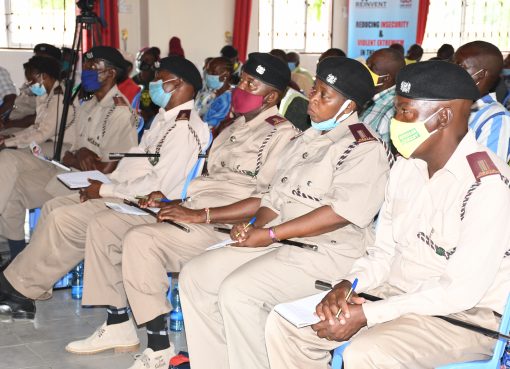The Pharmacy and Poisons Board (PPB) has in collaboration with the National Police Service, unveiled an operation to weed out unauthorized distribution, wholesale, and transportation of pharmaceuticals, in a renewed bid to bolster the regulation of pharmaceuticals across Kenya.
The Board has raised the red flag over proliferation of unlicensed courier services, motorbike operators, and public transport transporting pharmaceuticals without proper authorization.
Head of Good Distribution Practices at PPB Julius Kaluai noted that they were working with the National Police Service to enforce regulatory compliance, noting that unlicensed wholesalers, distributors, and transporters must meet national standards or face disciplinary measures.
“Our decision to work with police commanders from all the 47 counties follows a recent nationwide audit of health facilities aimed at identifying and addressing malpractices within the pharmaceutical sector,” he stated.
Speaking in Nakuru, Kaluai stated that data gathered during the surveillance would help pinpoint patterns in illegal pharmaceutical activities, enabling intelligence-based enforcement to better target these issues.
The head of Good Distribution also highlighted the need for closer collaboration between PPB and other government agencies at border points to prevent the entry of unregistered pharmaceuticals, further strengthening safeguards for public health.
Additionally, Kaluai issued a notice to retail outlets operating unauthorized online pharmacies, urging them to register their premises according to the services they provide.
He warned that all non-compliant entities would face strict enforcement measures to protect the integrity of the pharmaceutical supply chain.
He indicated that the Board has proposed a set of rules and regulations that will govern the online pharmacy service.
Kaluai said that the previous rules do not capture the health services offered online and that they want to raise the standards of their rules by harmonizing with the international standards.
“With the advancement in technology, we saw it necessary to come-up with new sets of rules and regulations, that will govern the sector,” said the official.
Kaluai pointed out that online pharmacies are growing so fast and a good number of the population consume online services.
He said that consultation, selling of medicines and drugs, prescription, counselling and therapeutic management are among the services offered online by professionals.
Kaluai explained that there are medicines which are over the counter and others are prescription only medicines. Prescription only medicines have strict laws that guard their use so that they are not misused.
He added that if the advertisements are not keenly crafted, it can lead to misuse of the drugs by the public.
The Board warned pharmaceutical distributors against selling drugs to unlicensed pharmacies.
The board directed the distributors to strictly adhere to good distribution practices to ensure the safety of Kenyans after an audit revealed significant malpractice within the supply chain.
According to Mr Kaluai, several wholesale outlets have been identified as sources of distribution to unlicensed retailers.
“Some wholesalers have registered their outlets but change their locations without informing the board, making inspection difficult,” he said, adding that this lack of communication contributes to a higher risk of illegal products reaching the public.
Mr Kaluai further explained that the vehicles used for transporting medicines, often matatus and lorries, are mostly unlicensed, failing to meet established transportation guidelines.
The Pharmacy and Poisons Board Lower Eastern Regional Head Dr. Onesmus Kilonzo also highlighted that many personnel handling medications are not registered pharmacists.
In these cases, qualified pharmacists may pick the medicines but subsequently leave them in the hands of unqualified individuals, raising serious concerns about the safety of the drugs being distributed.
“We have illegal wholesalers, which is a very serious area now under focus. There are retailers licensed to operate but are also engaging in illegal wholesale practices,” Dr Kilonzo noted.
He emphasized the importance of having qualified personnel in pharmacy departments within hospital settings.
He insisted that patients must receive the correct medication and value for their money.
“Private hospitals should comply with the ministry’s staffing norms, ensuring that there is a qualified person attending to patients at all times,” he said.
Additionally, he urged hospitals to verify their suppliers to confirm that they are regulated before engaging in business with them.
As part of the impending changes, starting in 2025, hospitals will be required to have pharmacy licenses overseen by licensed pharmacists.
Dr. Kilonzo said that this requirement is crucial for maintaining high standards in patient care.
The official reiterated that the guidelines for the transportation of pharmaceuticals mandate compliance from all involved in the distribution chain.
“The rules state that the transportation of pharmaceuticals must be supervised by a registered pharmacist. This applies to everyone in the business, from manufacturers to end-users,” Dr. Kilonzo noted.
By Anne Mwale and Megg Njoki




